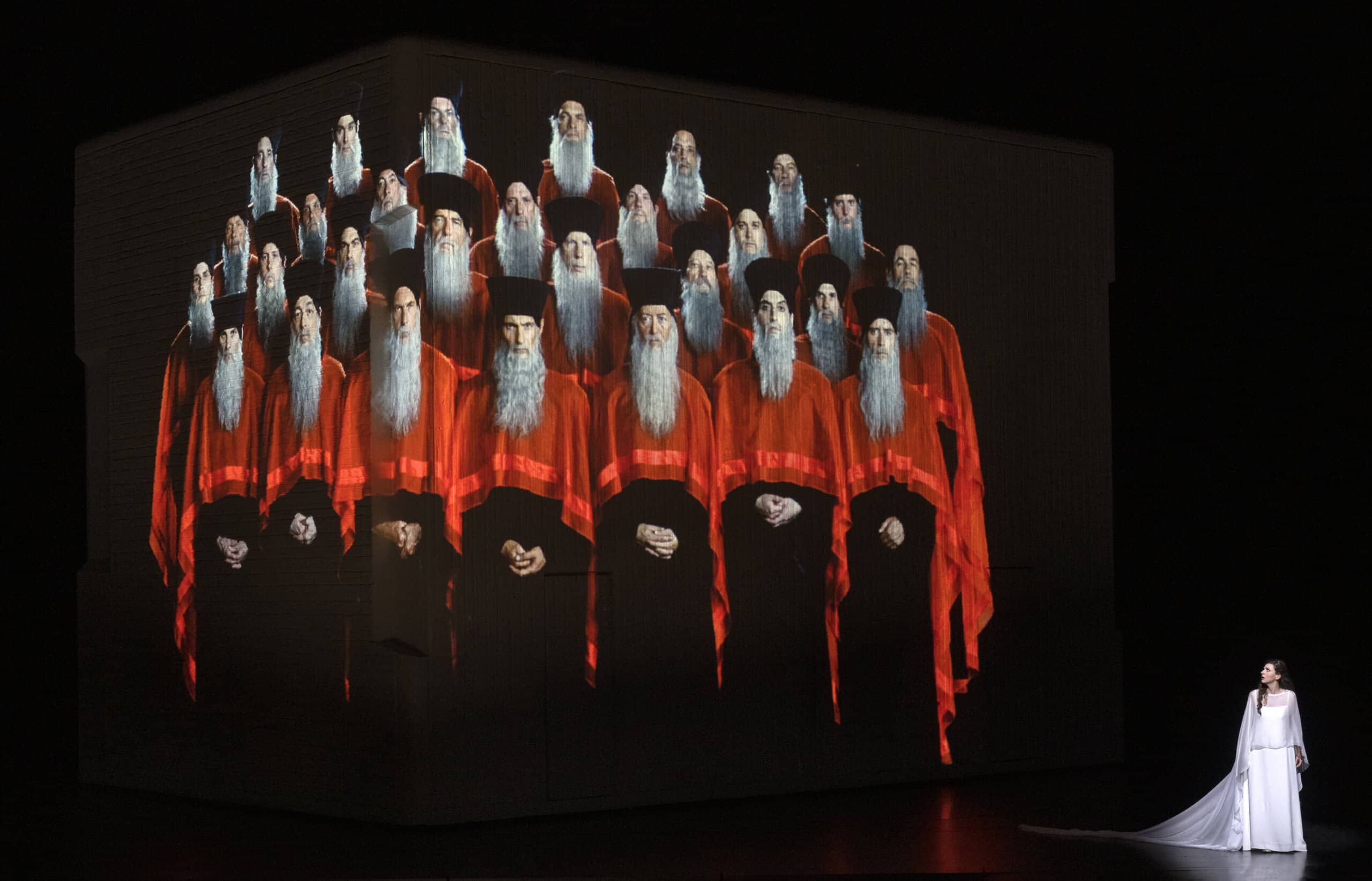FALSTAFF – SALZBURG FESTIVAL 2023
★☆☆☆☆☆

Photo: Ruth Walz
REVIEW: FALSTAFF FLOPS IN SALZBURG
Zurich-born, avant-garde director Christoph Marthaler flops miserably with his Falstaff production in Salzburg, which has received so many beatings from the audience and the press that it has almost become a performance in itself.
Embarrassingly bad, I soberly noted during the interval, where the German and international opera press has subsequently turned up the rhetoric with juicy, condescending assessments of the production.
Here is a small bouquet of the thistles.
Slapstick of the worst kind. The idea died after 15 minutes. Chaotic and out of control. Dull and incomprehensible. Melancholic nonsense. The director’s surreal bizarre comedy has hit rock bottom. Christoph Marthaler’s directing style has long since been exposed as a scam. Half a dozen gala guests fled in anger. The value of the show is zero. A complete failure.
Marthaler’s take on Verdi’s buffa opera Falstaff is framed in an utterly confused, subtle concept that no one in the audience seems to understand. In fact, it seems as if even the performers don’t grasp the premise they’ve been sent on stage to interpret.
The story is based on the work of film director Orson Wells, who, in addition to his masterpiece Citizen Kane, was also responsible for lesser-known, artistically ambitious but sometimes failed projects.
These included a complex cinematic interpretation of Falstaff from the mid-1960s, which Wells himself called a masterpiece, while criticism poured down on the strange production, which was made under complicated circumstances, where Wells had to lie to investors about the film’s real plot and content in order to get the financing through.
In Marthaler’s beaten-up opera production, which should be understood as a kind of tribute to Orson Wells, a director named Orson W. appears as an extra who tries to shoot the Falstaff story as a movie.
The opera is set on a dilapidated film set with thin set walls, a haphazard, maudlin set design, scattered spotlights, a wind machine and a confused assistant director rolling around on a dolly, as it’s called when you have a heavy camera and seat mounted on exposed train tracks.
On one side of the stage is an exclusive home theater where a changing number of guests watch clips from the film in the movie, which is implied to be in production.
On the other side of the stage is a dry swimming pool with foam cushions that technicians and extras incessantly fall into after splashing cables or camera equipment.
In this overplayed, unfunny chaos, the comedic plot is driven forward. The story of Falstaff is a comic detail in which the self-indulgent, overeating, drunken ex-officer sends identical amorous invitations to two wealthy women, hoping to score both them and their fortune.
The deception is discovered, Falstaff is taught a lesson and ends up thrown into the Thames in a laundry basket.
Verdi had stopped writing operas to devote himself to his new hobby – composing fugues – but was tempted by the uncomplicated comedy.
The music was the last opera from the master’s hand and is characterized by indisputable flair. He would hardly have liked this unsuccessful adaptation of his work.
The singers, including the Grammy-winning Canadian baritone Gerald Finley, the always reliable Jens Larsen and the talented Russian soprano Elena Stikhina, are unfocused, the Vienna Philharmonic seems disoriented, conductor Ingo Metzmacher gestures like an airplane pilot in an emergency (quote from a German newspaper) – and no one has a clue what is going on, let alone where the story went.
On stage, I seem to see the actors’ anguished glances at each other as the first boos from the completely sold-out auditorium sound 15 minutes into the performance. The audience’s reaction when Marthaler came on stage during the callbacks was not gracious.
This Falstaff hits an unprecedented low for Salzburg productions, and I’m surprised that the festival management doesn’t have a handbrake to pull when a production is so obviously going off the rails. On the other hand, a scandal now and then also helps to keep the press coverage alive.
1 measly star it has to be.




